Let’s face it—sleep doesn’t have the glamor of a new diet or a trending workout routine. But if you’re trying to change your habits, feel better, lose weight, think clearly, or just stop feeling like a zombie by 2 p.m., sleep needs to be your number one priority.
Catching Z’s Is Not a Luxury—It’s a Lifeline
Many of us were raised on hustle culture: sleep is for the weak, or something you earn when you retire. But research—and real life—show us the opposite. Your brain and body require sleep to function.
Deprive yourself, and things go south fast: slurred speech, confusion, even hallucinations if it goes too far. These symptoms aren’t signs of weakness—they’re warnings. Your brain literally cannot operate without sleep.
Even animals deprived of rest will eventually die, because the body’s overnight repair systems are non-negotiable.
Among the most critical is the glymphatic system, a sort of overnight janitorial crew for the brain that clears out waste like beta amyloids—proteins linked to Alzheimer’s disease. And it only works while you’re asleep.
What Happens When You Don’t Rest Enough?
Missing just a few hours of rest per week can cause serious damage. Here’s what the research says:
- Cognitive decline starts fast—just two weeks of sleeping under six hours a night is like staying up for 48 hours straight.
- Sleep-deprived driving is as dangerous as drunk driving, contributing to up to 30% of car accidents.
- Weight gain becomes more likely. You’ll not only eat more, but you’ll crave the worst stuff—refined carbs, sugar, junk food.
- Muscle loss over fat loss—If you’re dieting but not sleeping enough, your body will burn lean muscle instead of fat, even with calorie restriction.
Why You Can’t Fall Asleep (And What to Do About It)
Still up at midnight scrolling your phone and thinking, “I’m just not tired yet”? It’s not your body—it’s your environment.
Artificial light from screens tricks your brain into thinking it’s still daytime. Your body evolved over two million years to follow the sun’s rhythms. Light equals wake. Darkness equals sleep.
To fall asleep faster:
- Turn off screens at least an hour before bed.
- Read a physical book by soft light instead of scrolling.
- Create a wind-down routine—consistency trains your body to expect sleep at the same time each night.
Smart Sleep Hygiene Tips That Actually Work
If your bedroom looks more like a Vegas strip than a peaceful cave, it’s time for a reset. Here are simple but effective changes:
- Keep it dark, cool, and quiet. Light-blocking curtains and white noise can help.
- Go to bed and wake up at the same time every day. Yes, even weekends.
- Don’t use your bed for anything but sleep and sex. This trains your brain to associate bed with rest, not Netflix marathons or work.
- If you can’t fall asleep within 20 minutes, get up and go to another dark room until you feel tired again—just don’t turn on all the lights or start a new task.
Caffeine, Alcohol, and Nicotine: Sleep Saboteurs
These substances mess with your sleep more than you think:
- Caffeine can reduce sleep time by up to an hour, even six hours after consumption. If you’re a regular coffee drinker, keep it to the morning hours.
- Nicotine is a stimulant, even when delivered through patches or vapes.
- Alcohol might relax you, but it ruins deep sleep cycles and leads to more waking during the night.
Want better sleep? Keep the coffee to morning hours, avoid evening cocktails, and steer clear of tobacco entirely.
Food, Exercise, and Other Daily Habits That Boost Sleep
Your sleep quality is influenced long before bedtime:
- Exercise regularly. It doesn’t matter if it’s at night—movement helps regulate sleep, period.
- Eat lighter, cleaner meals. Diets high in meat and sugar can disrupt sleep.
- Avoid eating within two hours of bedtime. Give your body time to digest.
One bonus tip: Take a warm shower before bed. As your body cools afterward, it triggers the brain’s signal that it’s time to sleep.
What About Supplements?
Let’s make this easy—most supplements are unnecessary, and we always recommend a foods-first approach.
- Skip the sleeping pills. Even occasional use (fewer than 18 pills a year) has been associated with a higher risk of early death.
- Melatonin can help, but it’s unregulated and often inconsistent in quality.
- Try foods rich in melatonin. Pistachios, for example, contain a natural dose—just two before bed can help.
So, How Much Sleep Do You Actually Need?
If you think you’re functioning fine on five or six hours, think again. Most adults need at least 8 to 8.5 hours per night. That means in bed longer than 8 hours, since you’re not asleep the entire time. Even mild sleep deprivation accumulates over time, leading to chronic fatigue, brain fog, and health issues.
And if you’re tired during the day? Nap! Even 10–20 minutes can reset your brain and prevent you from reaching for a late-day caffeine hit that will sabotage your next night’s rest.
The Bottom Line: Sleep First, Then Everything Else
Don’t make sleep the last thing on your wellness list. Make it the first. Once you’re getting consistent, quality sleep, everything else—healthy eating, consistent workouts, emotional regulation—gets so much easier.
If you’re serious about transforming your health, start by transforming your bedtime.
📘 Want to dig deeper? Pick up Why We Sleep by Dr. Matthew Walker for a science-packed, eye-opening look at the miracle that is sleep.
Sleep is not optional. It’s foundational. Get serious about it—and everything else will fall into place.
Learn more about sleep in this episode of the Get Out of Your Own Way podcast below.
If you found this post helpful, we think you should read these too:
- Meditation Without the Woo: Why Awareness is the Real Game-Changer
- How Your Brain Works & How Emotions Are Involved
- Common Health Myths Debunked: Separating Fact from Fiction
Save for later—Pin This Post!
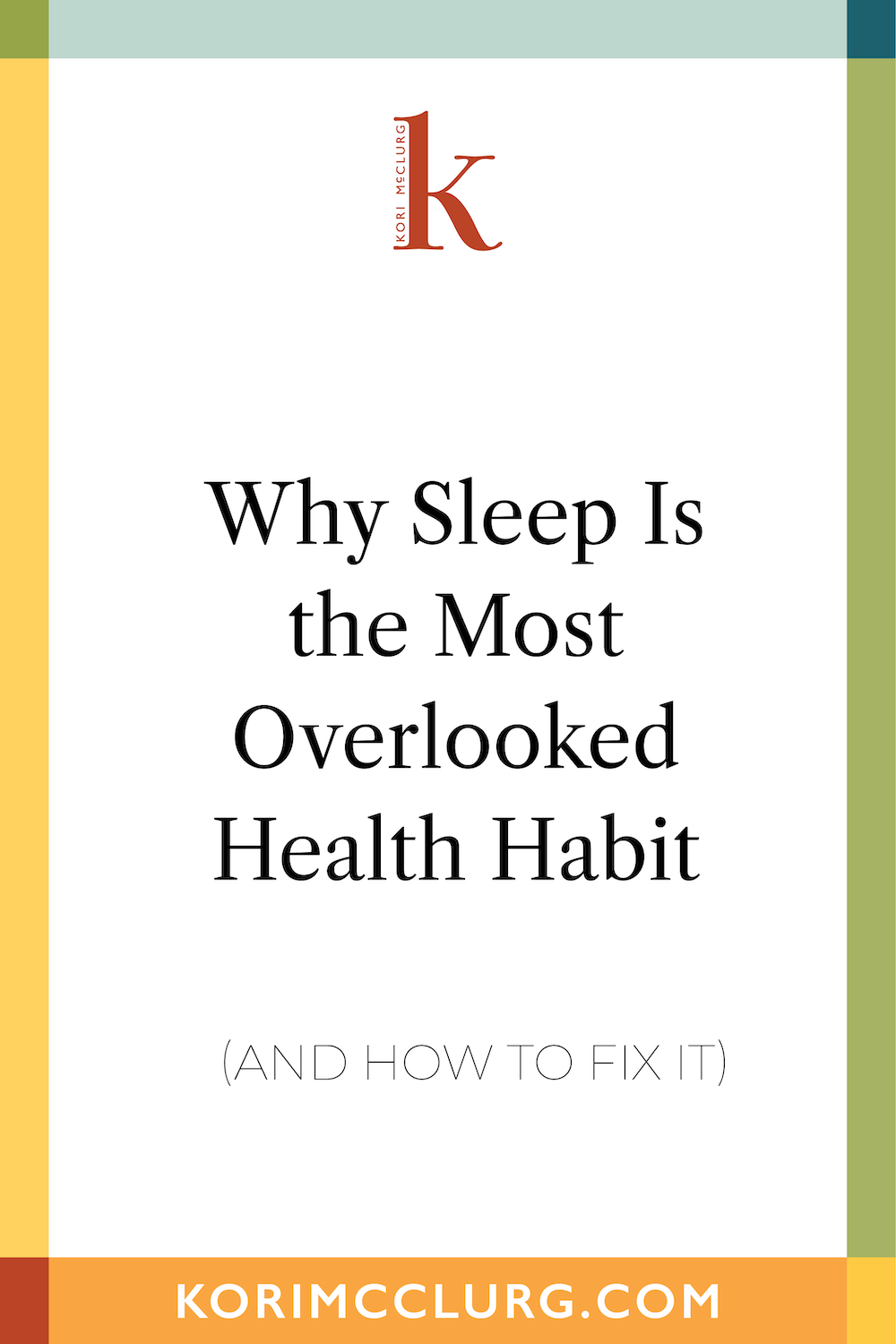
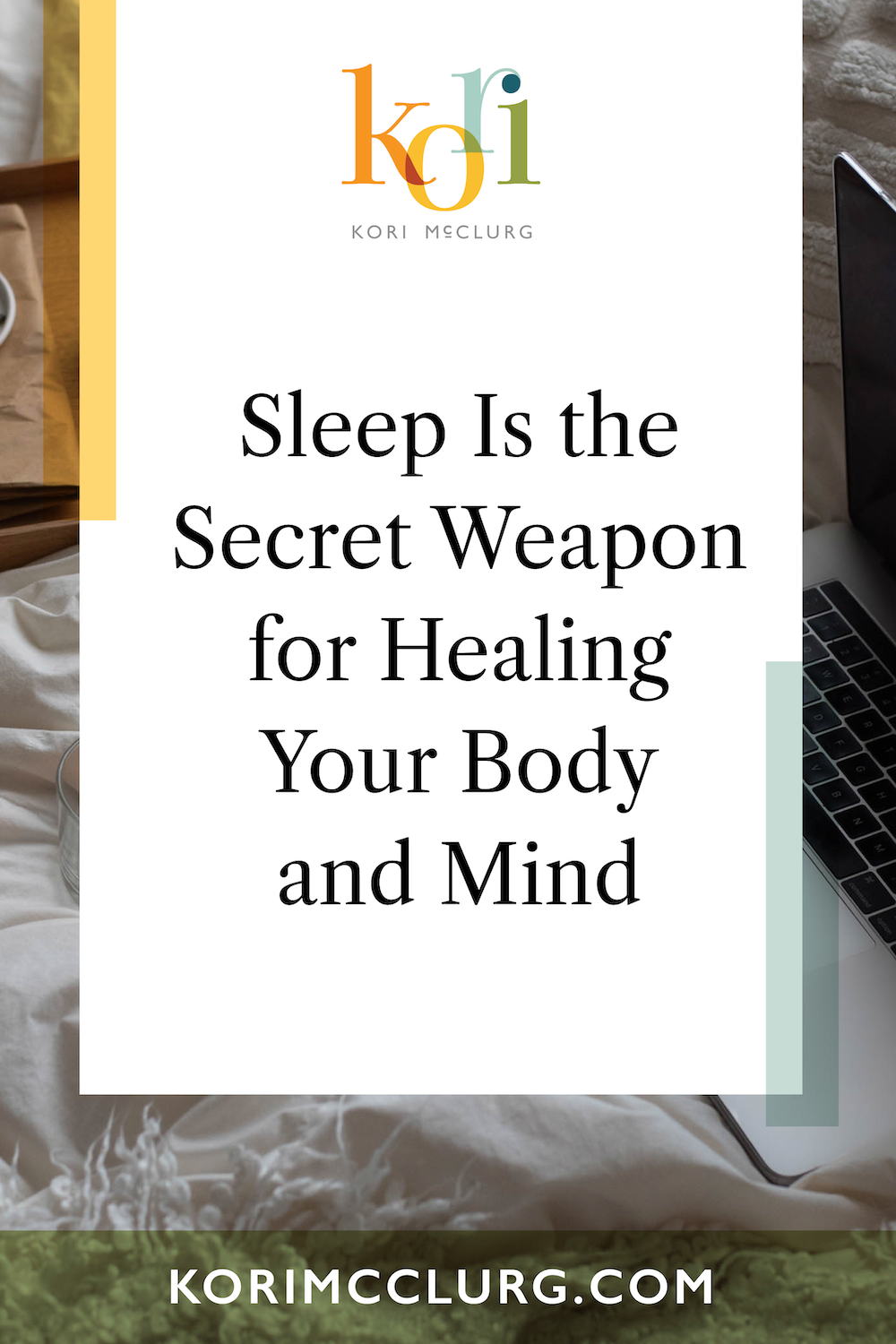
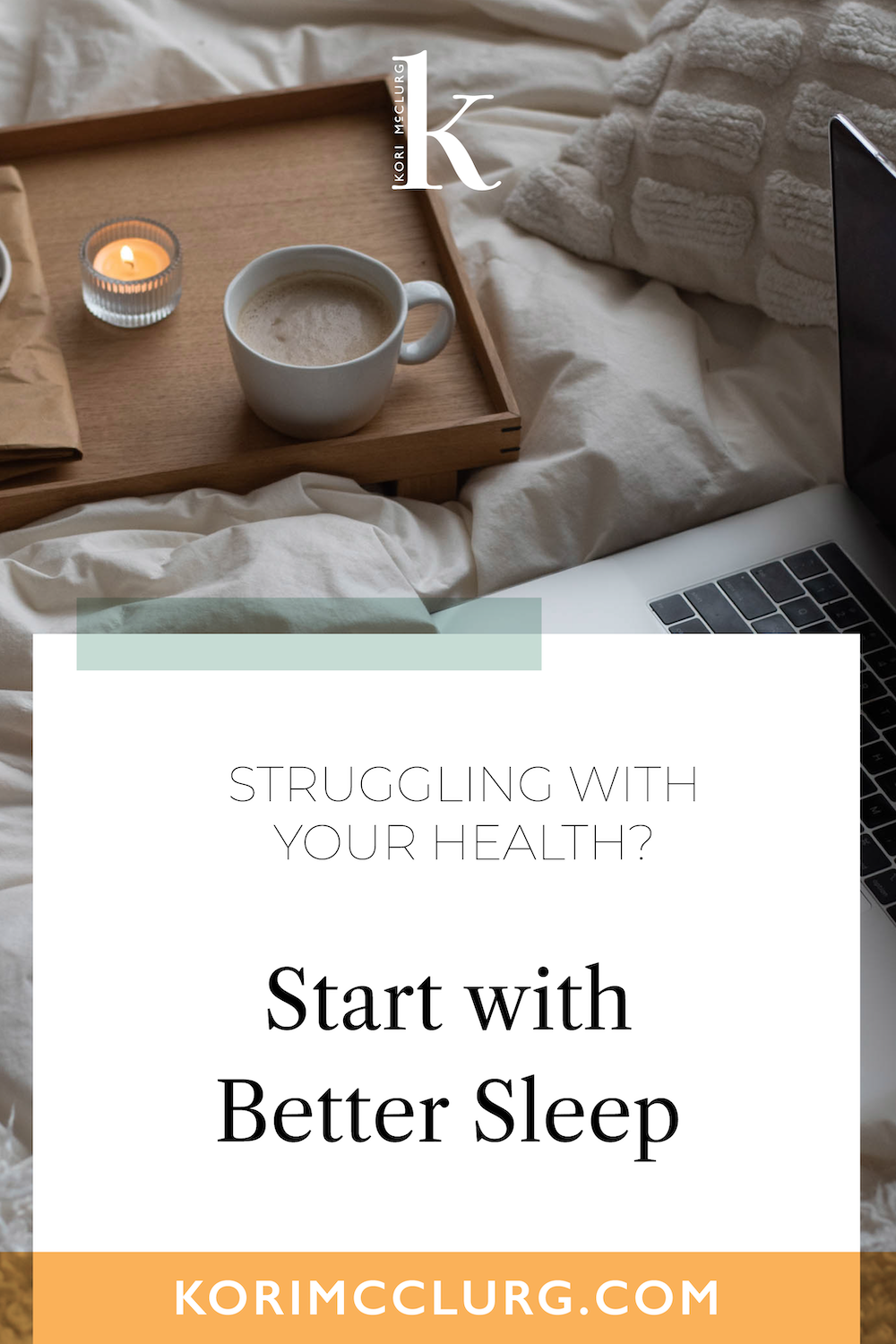
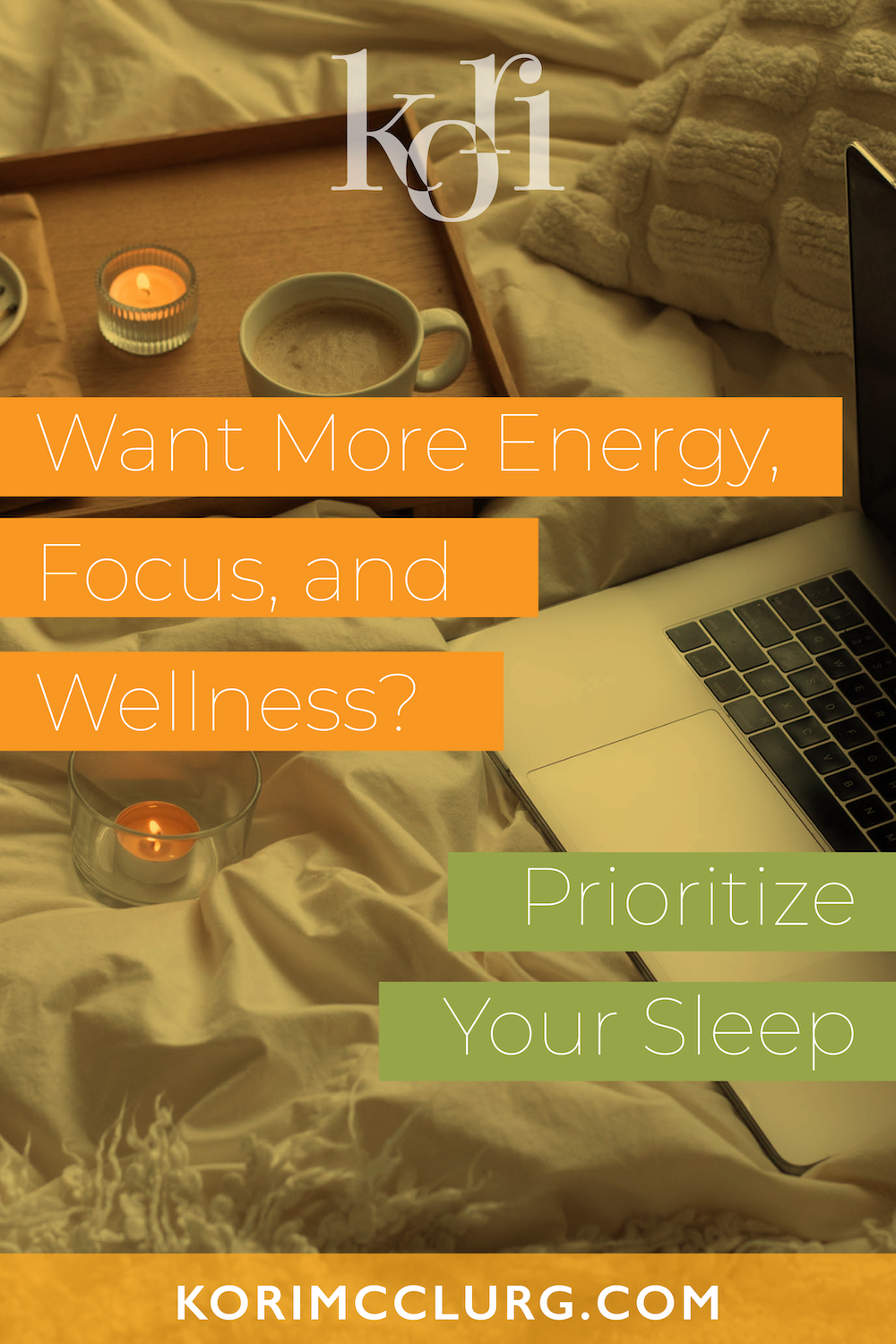
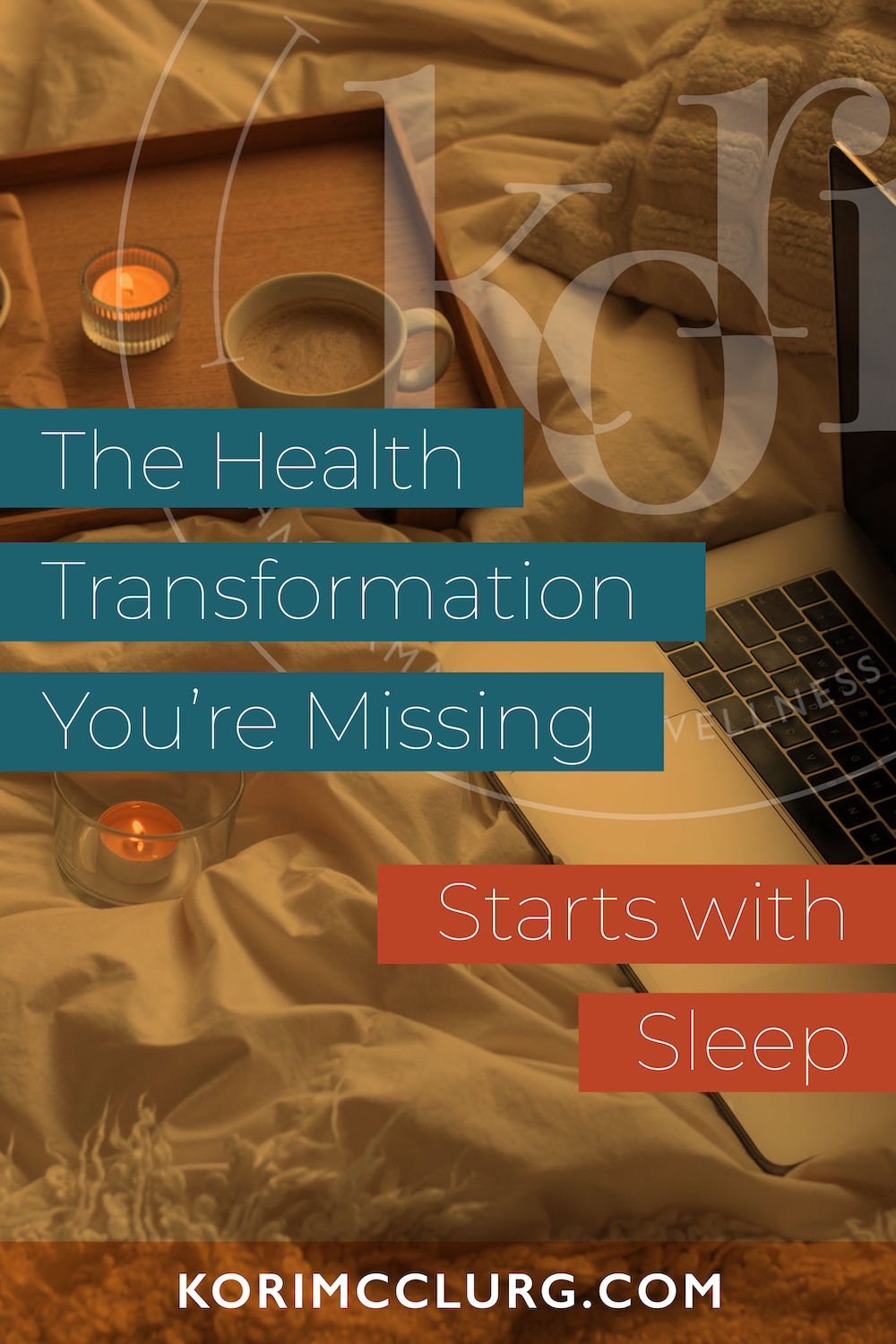
July 8, 2025
All content ©Kori McClurg 2025
Branding & Site Design by Moriah Riona Branding
All content ©Kori McClurg 2025